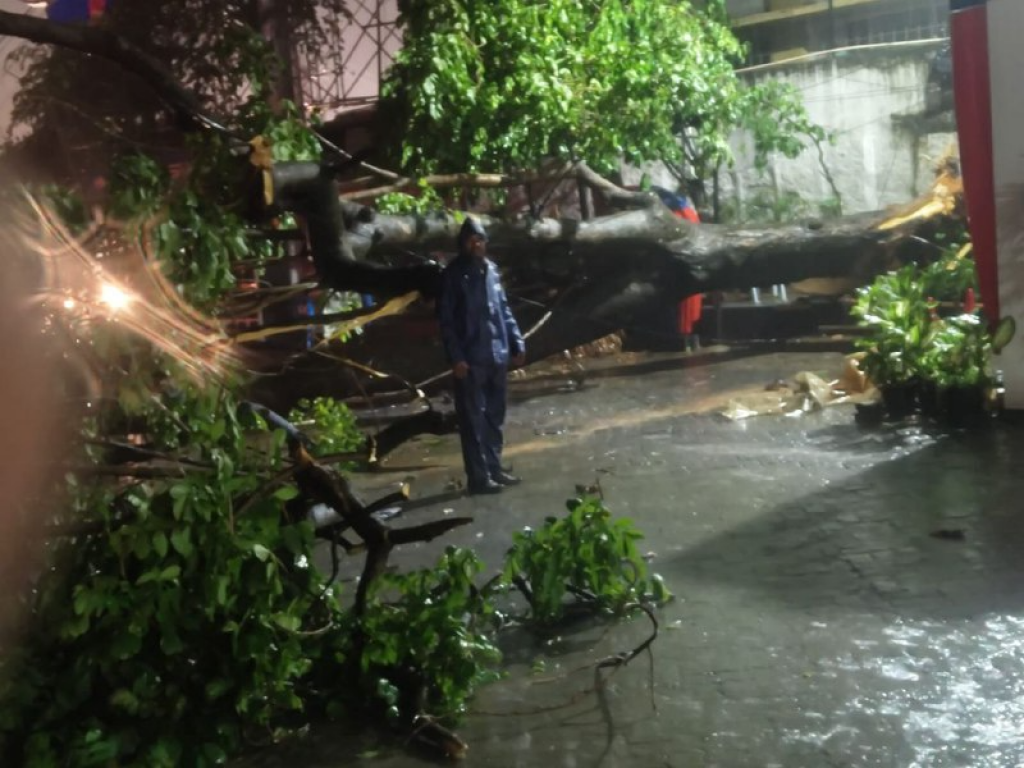Karnataka capital latest victim of an unending spate of extreme weather events across the world; It received 111.1 mm of rainfall yesterday — highest for a day in June in 133 years
 A photo shared by Bengaluru City Traffic Police on its X handle, @blrcitytraffic
A photo shared by Bengaluru City Traffic Police on its X handle, @blrcitytraffic
Yesterday, on June 2, Bengaluru recorded 111.1 millimeters of rainfall which was the highest precipitation ever recorded in the city within a single day in June in the last 133 years.
As per the India Meteorological Department (IMD), the normal rainfall for the month of June in Bengaluru is 106.5 mm. This suggests that Sunday received more than the month’s quota of rainfall.
As per the records maintained by the IMD, the previous highest daily rainfall ever recorded in Bengaluru in June was 101.6 mm on June 16, 1891.
The thunderstorm with forecasts of even more rainfall in the coming days has placed Bengaluru on the course to exceed its record for highest monthly rainfall in June as well. The current record is 228.2 mm rainfall which was recorded in 1996.
The Bruhat Bengaluru Mahanagara Palike (BBMP) which is the municipal authority in the IT hub, told the press that it received 285 complaints of tree felling across the city. A bulk of these grievances entailed trees falling on roads which threw city traffic out of gear.
It was the first spell of rainfall to hit Bengaluru after the arrival of the Southwest monsoon in the southern regions of peninsular India on May 30 — two days ahead of its expected arrival.
Following the heavy rainfall in Bengaluru, social media platforms like X and Instagram were flooded with visuals of waterlogging with commuters wading through waist-deep water on roads. An overflowing drain in the Anekal area was also discerned as a waterfall by many astonished social media users.
Meanwhile, time and again, the Intergovernmental Panel on Climate Change (IPCC) has warned about the rise in the incidence of extreme weather events like heavy rainfall in a short duration followed by prolonged periods of drought.
Such an erratic weather pattern not only disrupts commute but can also wreak havoc on the crop cycle of an agrarian country like India and endanger the food security of millions of Indians.
It is observed that both heavy rainfall and drought have been damaging crops in India with an unprecedented frequency in the last three years.
We are a voice to you; you have been a support to us. Together we build journalism that is independent, credible and fearless. You can further help us by making a donation. This will mean a lot for our ability to bring you news, perspectives and analysis from the ground so that we can make change together.


















































